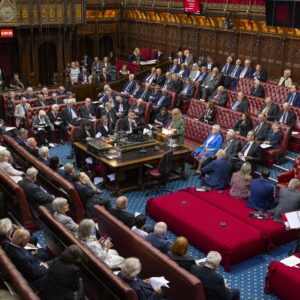
Weaponizing Water: India’s IWT Suspension Alarms UK Parliament
India’s suspension of the Indus Waters Treaty sparks alarm in the UK Parliament, raising global concerns over treaty violations and water wars.

India’s suspension of the Indus Waters Treaty sparks alarm in the UK Parliament, raising global concerns over treaty violations and water wars.

The agreement gives Afghanistan vital export routes and positions Pakistan to advance its long-term vision of regional economic connectivity.
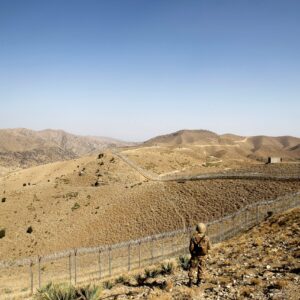
Afghanistan has pledged to disarm and relocate the TTP—a potential breakthrough in regional counterterrorism efforts.
![The Taliban pushes for foreign mining investments in Afghanistan's trillion-dollar mineral wealth, despite environmental risks. [Image via AFP]](https://southasiatimes.org/wp-content/uploads/2025/02/AA1yg8hG-300x300.webp)
The Taliban pushes for foreign mining investments in Afghanistan’s trillion-dollar mineral wealth, despite environmental risks.
![Tariffs of Trump on China, Mexico, and Canada reshaped global trade, creating lasting economic and diplomatic impacts. [Image via AP]](https://southasiatimes.org/wp-content/uploads/2025/02/Donald-Trump-300x300.webp)
Tariffs of Trump on China, Mexico, and Canada reshaped global trade, creating lasting economic and diplomatic impacts.
![Volkswagen challenges a $14 billion tax demand in India, highlighting concerns over retrospective tax laws. [Image via Reuters]](https://southasiatimes.org/wp-content/uploads/2025/02/32SCDMFPAZJE7FGAS5IGW5TARI-300x300.webp)
Volkswagen challenges a $14 billion tax demand in India, highlighting concerns over retrospective tax laws.
![9 arrested in NYC demonstration targeting Elon Musk over federal job cuts under Trump, sparking nationwide Tesla protests. [Image via Reuters]](https://southasiatimes.org/wp-content/uploads/2025/03/web1_2025-03-02T035615Z_1_LYNXNPEL21012_RTROPTP_4_TESLA-PROTEST-NEW-YORK-300x300.webp)
9 arrested in NYC demonstration targeting Elon Musk over federal job cuts under Trump, sparking nationwide Tesla protests.
![Russia negotiates its military presence in Syria as the new leadership seeks better terms for Russian base after Assad's fall. [Image via Reuters]](https://southasiatimes.org/wp-content/uploads/2025/03/NTW3ZGDVTVLV3ECWDVCJBEAXEI-300x300.webp)
Russia negotiates its military presence in Syria as the new leadership seeks better terms for Russian base after Assad’s fall.
![Lutnick says U.S. tariffs on Mexico, Canada may be lower than 25%; trade partners warn of retaliation amid economic concerns. [Image via AFP]](https://southasiatimes.org/wp-content/uploads/2025/03/4ec004b3-5fe6-41c2-90c4-5dbc6a3fb0cb_w1023_r1_s-300x300.webp)
Lutnick says U.S. tariffs on Mexico, Canada may be lower than 25%; trade partners warn of retaliation amid economic concerns.
![Global stocks plunge as new tariffs by Trump spark fears of inflation, stalled growth, and global trade tensions. [Image via BBC]](https://southasiatimes.org/wp-content/uploads/2025/04/p0l29v8r-300x300.webp)
Global stocks plunge as new tariffs by Trump spark fears of inflation, stalled growth, and global trade tensions.
![South Korea's Constitutional Court ousts President Yoon over martial law, triggering a presidential election in 60 days. [Image via Dunya News]](https://southasiatimes.org/wp-content/uploads/2025/04/876878_41891290-300x300.webp)
South Korea’s Constitutional Court ousts President Yoon over martial law, triggering a presidential election in 60 days.
![PAJCCI hails PM Shehbaz Sharif's Rs. 7.41/unit power tariff cut, calling it a boost for industry, economy, and public relief. [Image via APP]](https://southasiatimes.org/wp-content/uploads/2025/04/1186726_2643638_Electricity_updates-300x300.webp)
PAJCCI hails PM Shehbaz Sharif’s Rs. 7.41/unit power tariff cut, calling it a boost for industry, economy, and public relief.
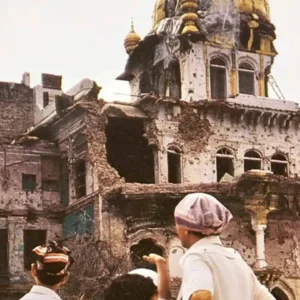
Since India’s independence in 1947, the Sikh community has faced a persistent pattern of marginalization through legal subversion, political suppression, and violent repression. From the denial of religious identity in the Constitution to the storming of the Golden Temple and the 1984 anti-Sikh pogroms, this article examines how state institutions have systematically undermined Sikh rights, expression, and autonomy—both within India and across borders.
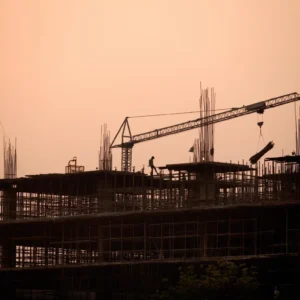
A chilling shift in Pakistan’s strategic posture signals a potential new front in future India-Pakistan conflicts: economic warfare. In response to recent military escalations, Islamabad is reportedly prepared to target India’s industrial hubs, threatening vital economic infrastructure and financial interests linked to the ruling elite. As deterrence evolves, New Delhi must reassess its security doctrine to safeguard the backbone of its economic power.

In a landmark briefing, DG ISPR exposes Indian state-sponsored terrorism behind the Khuzdar school bus attack, detailing RAW’s proxy warfare in Balochistan and unveiling Pakistan’s new counterterrorism doctrine
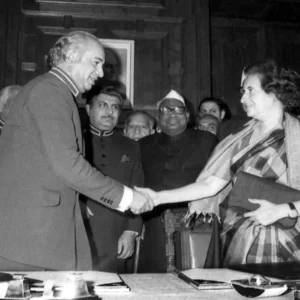
India’s suspension of the Indus Waters Treaty has led Pakistan to reconsider the Simla Agreement, threatening decades of bilateral diplomacy.

In a troubling development that raises serious concerns for Pakistan’s sovereignty and national security, 59 members of the U.S. On 30th May 2025, US Congress
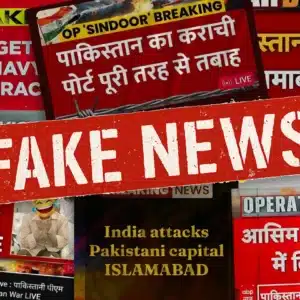
India stands at a precarious moment on the world stage, facing growing diplomatic isolation fueled by internal political shifts and inflammatory media narratives. As BJP-aligned outlets target even close allies like the U.S. with baseless conspiracies, the country’s global credibility and long-held democratic image are rapidly eroding.

Since India’s independence in 1947, the Sikh community has faced a persistent pattern of marginalization through legal subversion, political suppression, and violent repression. From the denial of religious identity in the Constitution to the storming of the Golden Temple and the 1984 anti-Sikh pogroms, this article examines how state institutions have systematically undermined Sikh rights, expression, and autonomy—both within India and across borders.

A chilling shift in Pakistan’s strategic posture signals a potential new front in future India-Pakistan conflicts: economic warfare. In response to recent military escalations, Islamabad is reportedly prepared to target India’s industrial hubs, threatening vital economic infrastructure and financial interests linked to the ruling elite. As deterrence evolves, New Delhi must reassess its security doctrine to safeguard the backbone of its economic power.

In a landmark briefing, DG ISPR exposes Indian state-sponsored terrorism behind the Khuzdar school bus attack, detailing RAW’s proxy warfare in Balochistan and unveiling Pakistan’s new counterterrorism doctrine
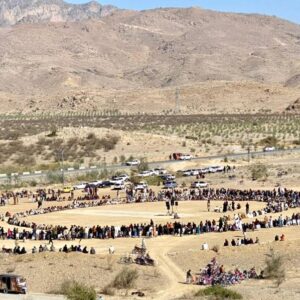
A tribal jirga in Mirali demands an end to Pakistan’s military actions against the TTP, yet fails to condemn terrorism, exposing a complex security dilemma. The state’s strategic restraint, tribal politics, and cross-border tensions with Afghanistan all converge in this growing crisis.
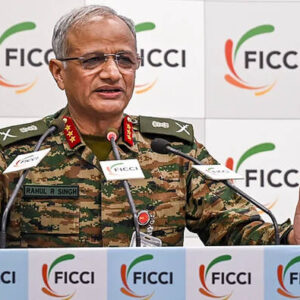
India’s effort to frame Pakistan as a proxy in the May 2025 standoff reflects denial, not strategy. Lt Gen Rahul Singh’s recent remarks fail to acknowledge Pakistan’s calibrated response that exposed critical gaps in India’s military assumptions.
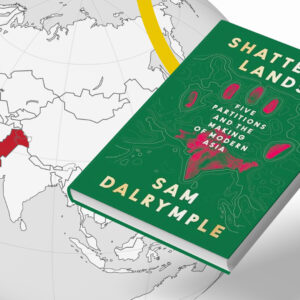
In Shattered Lands, Sam Dalrymple reimagines modern South Asia through five overlooked partitions, unearthing its forgotten ties to the Arabian Raj.

A strategic blunder at best, Iran has lost its soft image inside Pakistan in just one blow. After over 24 hours of Iranian strikes inside Pakistan, the latter’s response was highly anticipated.
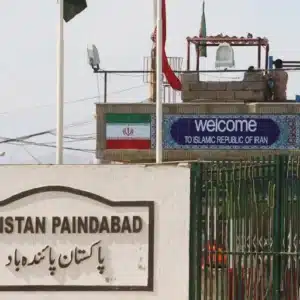
The unprovoked strike by Iran inside Pakistan can be explained through some plausible scenarios.
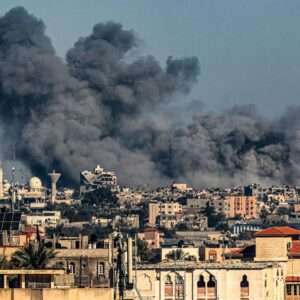
Accidental killings of Israeli hostage highlight pitfalls in Netanyahu’s military strategy, prompting global scrutiny of his leadership during the ongoing Gaza crisis.
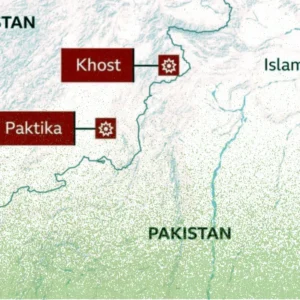
Amidst simmering tensions and potential provocations, Pakistan’s proactive stance sends a clear message: any threat to its security will be swiftly countered

Pakistan on the Precipice: Will the IMF Deal Deliver Stability or More Pain?

Pakistan’s economic crisis is dire. The IMF advocates for privatization in Pakistan as a solution, but is it a cure-all or a risky gamble?
![The impact of the Iran-Israel conflict extend far beyond the borders of the Middle East, with potential repercussions for global security and stability [SAT Creatives]](https://southasiatimes.org/wp-content/uploads/2024/04/SAT-Web-Banners-8-1-300x300.webp)
The broader implications of the Iran-Israel conflict extend far beyond the borders of the Middle East, with potential repercussions for global security and stability.
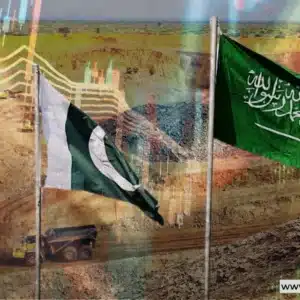
Pakistan’s struggling economy receives a potential boost with a recent Saudi visit. Will $5 billion in investments and focus on key sectors like Balochistan’s mining be a game-changer?
![India faces diverse challenges beyond economics, including imminent overtaking of China as the world's most populous nation [Getty Images].](https://southasiatimes.org/wp-content/uploads/2024/04/1673275741989-300x300.webp)
Economic woes, social tensions, and democratic concerns. Can India overcome the Challenges of Modern India?
![India's Chabahar Port deal with Iran strains US ties [Image via Al jazeera].](https://southasiatimes.org/wp-content/uploads/2024/05/d81483c851b346e781728c0251224343_18-300x300.webp)
India’s Chabahar Port deal with Iran strains US ties. Can India balance its strategic US partnership and regional ambitions with Iran?
![Surging ISIS-K Threat in Afghanistan; Taliban Patrol Kabul Streets: August 27, 2021. [Image Credit: Aamir Qureshi/AFP via Getty Images]](https://southasiatimes.org/wp-content/uploads/2024/05/gettyimages--300x300.webp)
ISIS-K threat surge in Afghanistan poses a significant threat to the regional security, with potential spillover into Pakistan.
![US-India flags fly at the White House. Since 2014, political metamorphosis of India under the BJP has diverged toward a Hindu-centric identity [Image via Reuters].](https://southasiatimes.org/wp-content/uploads/2024/05/2023-06-21T195636Z_979887234_RC2VN1AOY3KX_RTRMADP_3_USA-INDIA-1704088052-300x300.webp)
Since 2014, political metamorphosis of India under BJP has diverged from Nehru’s liberal vision towards a Hindu-centric identity led by Modi.

The central agenda of Digital Silk Road was to enhance the digital connectivity and infrastructure by exporting the technologies of 5G.
![Pakistan and China strategic partnership: In Beijing on June 7, 2024, Pakistan's Prime Minister Shehbaz Sharif meets with Chinese President Xi Jinping [Image via Government of Pakistan].](https://southasiatimes.org/wp-content/uploads/2024/06/57373-300x300.webp)
New agreements for Pakistan and China, but will their “all-weather” strategic partnership weather the regional storms?

The 2024 elections brought an unforeseen plot twist, leaving pundits and citizens alike pondering a pivotal question: Is the magic of ‘Brand Modi’ fading?

Since India’s independence in 1947, the Sikh community has faced a persistent pattern of marginalization through legal subversion, political suppression, and violent repression. From the denial of religious identity in the Constitution to the storming of the Golden Temple and the 1984 anti-Sikh pogroms, this article examines how state institutions have systematically undermined Sikh rights, expression, and autonomy—both within India and across borders.

A chilling shift in Pakistan’s strategic posture signals a potential new front in future India-Pakistan conflicts: economic warfare. In response to recent military escalations, Islamabad is reportedly prepared to target India’s industrial hubs, threatening vital economic infrastructure and financial interests linked to the ruling elite. As deterrence evolves, New Delhi must reassess its security doctrine to safeguard the backbone of its economic power.

In a landmark briefing, DG ISPR exposes Indian state-sponsored terrorism behind the Khuzdar school bus attack, detailing RAW’s proxy warfare in Balochistan and unveiling Pakistan’s new counterterrorism doctrine

Pakistan’s maritime ambitions are taking shape as the nation positions itself as a key trade hub for landlocked Central Asian countries.

Can India balance its strategic partnership with Russia while navigating global pressure over the Ukraine conflict?

Pezeshkian faces the daunting task of healing Iran’s economy and relationships, balancing domestic and global expectations for a potential new direction. Will his leadership mark a lasting shift for Iran, or is it a temporary pause in history’s course?

Pakistan is under siege. Not from foreign forces, but from a domestic enemy as insidious as any: narcotics.

Health Minister Syed Qasim Ali Shah has announced that a Climate Change Cell will be established in the Health Department to address the growing health challenges posed by climate change.
![The formation of Pakistan's Special Investment Facilitation Council (SIFC) aimed to enhance and simplify the country's investment climate [Image via Bloomberg].](https://southasiatimes.org/wp-content/uploads/2024/08/387604833-300x300.webp)
The Special Investment Facilitation Council (SIFC) is a unified platform designed to enhance and simplify Pakistan’s investment climate.
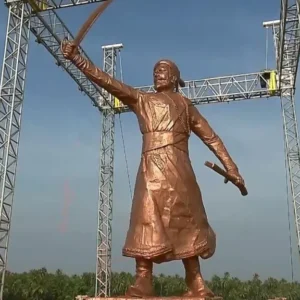
The statue’s collapse of Shivaji in Maharashtra sparks protests, political controversy, and allegations of corruption.
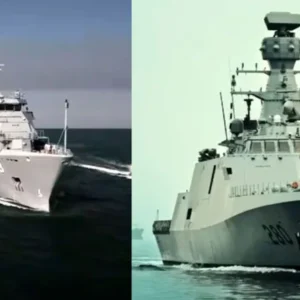
On Defence Day, Pakistan Navy adds offshore patrol vessel PNS Hunain and PNS Babur, enhancing naval defense capabilities.

House committee subpoenas Blinken to discuss his role in the Afghanistan withdrawal. Hearing set for September 19.

As the U.S. heads into elections, the Biden Doctrine is in focus. Is Biden’s leadership effective or overshadowed by failures?

As India aims for global economic stature, the latest FATF Mutual Evaluation Report reveals glaring deficiencies in the country’s AML and CFT systems.

Explore Iran’s Middle East Playbook in the Gaza war, balancing ideology, proxies, and realpolitik objectives.

Bangladesh reroutes textile exports via the Maldives, bypassing India, impacting Indian port revenue amid strained ties.
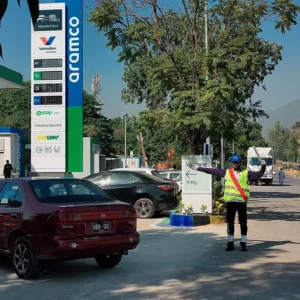
Aramco’s new retail station opens in Islamabad, promising high-quality fuel and services, enhancing Pakistan’s oil sector.

Pakistan cuts interest rates to boost growth, with inflation easing and economic stability improving amid IMF support.
![US reaffirms commitment to supporting Pakistan against terrorism, condemns Karachi attack, and urges peaceful protests. [Image via ARY News]](https://southasiatimes.org/wp-content/uploads/2024/12/Matthew-Miller-US-300x300.webp)
US reaffirms commitment to supporting Pakistan against terrorism, condemns Karachi attack, and urges peaceful protests.
![PCB suggests a hybrid model for the Champions Trophy, asking for equal treatment in future tournaments in India. [Image via ESPN CricInfo]](https://southasiatimes.org/wp-content/uploads/2024/12/388525.6-300x300.webp)
PCB suggests a hybrid model for the Champions Trophy, asking for equal treatment in future tournaments in India.
![Farmers protest Srinagar Ring Road satellite townships, citing concerns over land loss, livelihoods, and the environment. [Image via Kashmir Life]](https://southasiatimes.org/wp-content/uploads/2024/12/The-unending-piers-of-the-upcoming-Flyover-of-the-Srinagar-Ring-Road-on-Srinagar-Pampore-strtech-of-the-Express-Highway-KL-Image-Masood-Hussain-300x300.webp)
Farmers protest Srinagar Ring Road satellite townships, citing concerns over land loss, livelihoods, and the environment.

The spectre of the 2002 Gujarat Riots has loomed large over Indian Prime Minister Narendra Modi. Despite consistent denials of state complicity, a new BBC documentary has raised questions that have haunted the country for two decades.
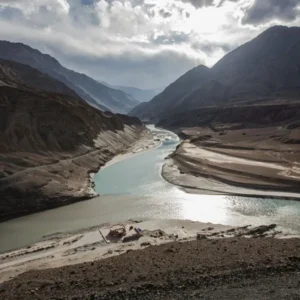
Despite numerous violent conflicts between India and Pakistan since the Indus Waters Treaty (IWT) was ratified in 1960, the two neighbors have not yet engaged in any water wars. The treaty has, however, come under fresh scrutiny in recent days.
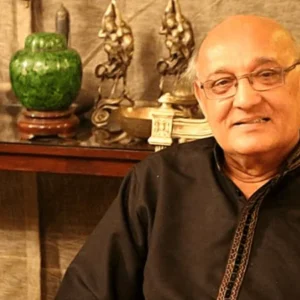
Renowned drama writer, poet, and educationist, literary legend Amjad Islam passes away today in Lahore at the age of 78…

CPEC would link Pakistan\’s Gwadar port in Balochistan with China\’s largest province, Xinjiang. Owing to China\’s plans to extend CPEC to Afghanistan and the possibility of strengthening economic ties between China and Pakistan, India\’s concerns have grown.
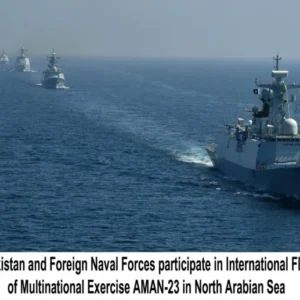
Aman Maritime Exercise hosted by the Pakistan Navy, begins!
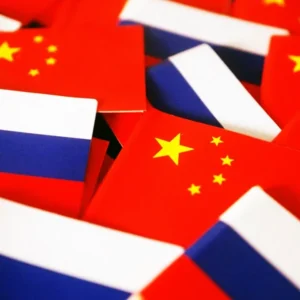
U.S. expands trade blacklist with 37 entities for national security and human rights concerns.

Pakistan has rarely been free of the dread of an impending crisis, as history demonstrates. The nation\’s quest for survival has been fascinating and perilous since its inception. But, it must tenaciously hold onto the hope that gave it birth.

Pakistan is not an oasis in the larger, global movement for women\’s rights. But, there has been no real progress in Pakistan\’s seeming drive for women\’s rights. In this scenario, it is imperative to determine whether Pakistan has an indigenous feminist movement.

Hinduism and Islam have coexisted for millennia since Islam arrived in South Asia. This relationship has been sporadic, with periods of both peace and conflict. The need for unbiased historical pattern analysis, though, cannot be overstated.

Since normalization is a protracted and challenging process, wider support and recognition from regional and extra-regional countries is essential because China alone cannot guarantee the longevity of the Saudi-Iran agreement.
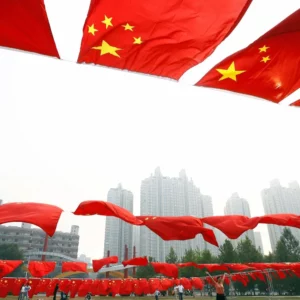
If recent events in Asia are any indicator, China, Russia, and India are anticipated to showcase their interests, challenge the existing world order, and explore strategic alliances in order to shape the evolving multipolar global environment.

The book provides a valuable insight into the post-withdrawal Afghanistan. “The Return of the Taliban” by Hassan Abbas is indeed a significant addition to the existing corpus of knowledge on Afghanistan after the Taliban takeover.
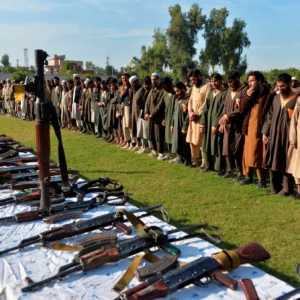
Terrorist organizations such as TTP, ISKP and IMU, operating in South and Central Asia, are the significant strategic barriers to regional connectivity.

The Afghan diaspora has faced ongoing struggles since the 1980s, marked by the heartbreaking necessity to leave their homeland. While their primary yearning is for a peaceful Afghanistan, the harsh realities of present-day global, political, and social circumstances continue to haunt their dreams.
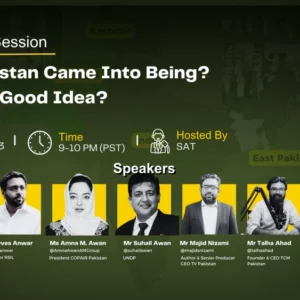
On the 14th of August 2023, the South Asia Times (SAT) hosted an exclusive X Space Session, exploring the pivotal question: “Why Pakistan Came Into Being? Was It a Good Idea?”
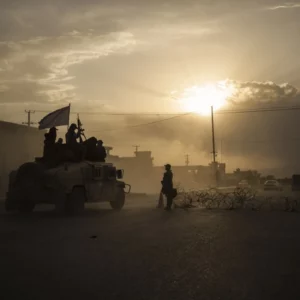
Two years of Kabul’s takeover, what is new and what is old about the new rulers of Afghanistan?
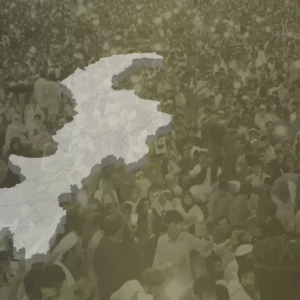
The ethno-national fault line of Pakistan’s North-West has tactfully been weaponized by PTM to further sub-nationalist desires.

What has been gained and what has been lost in this fresh diplomatic rift between India and Canada? The answer to this can be found in some possible scenarios.
For more than 70 years, Indian state-sponsored atrocities have caused human rights violations in the Indian Illegally Occupied Jammu and Kashmir (IIOK). The barbaric incident that happened in the twin villages of Kunan and Poshpora, in Kupwara District of Kashmir can never be forgotten.
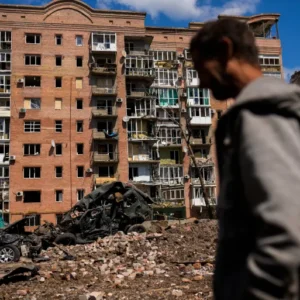
Russia’s actions speak for themselves. Ukraine is a flat land buffer zone for Russia which has protected it from Napoleonic France, and Imperial and Nazi Germany. The West has been in a constant liberal delusion while Russia has acted realistically and defensively.

The implications of the ongoing crisis are not only limited to Europe. The Russian intervention will produce indispensable ramifications for South Asia as well. As gas and oil prices will face a surge amid the crisis in Europe, this will likely cause a severe recession for South Asian economies and will hamper the manufacturing capacities.
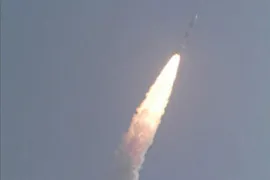
As the international community has long been concerned over nuclear technology and nuclear missiles falling into the hands of rogue elements – Isn\’t this specific incident of India\’s accidental missile firing into Pakistan indicate rogue-actors-like handling of the weapon system by a nuclear state?
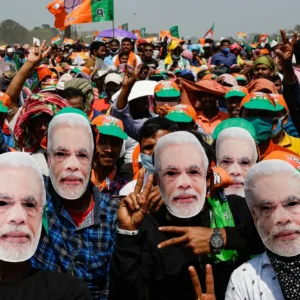
India\’s BJP turns out victorious in Uttar Pradesh\’s state elections 2022. What are the key take-aways from this victory? How does it set the tone for the upcoming general elections in India? How far and in what ways India\’s \’democracy\’ has changed?
War is a social institution that evolves along with changes in societies, political entities, and technologies. If a nation is to maintain its security, it must look beyond the war on terror and prepare for the ascension of 5GW which has confronted many nations of the world, including Pakistan with an evolving strategic paradigm. It is a moment of now or never!
Iran, once again, stressed the formation of an inclusive government in Afghanistan and maintained that this is the only way through which Iran will formally
Historical figures have always been questioned and made controversial in parallel to the uncontested fame they hold. Such is the case with the charismatic and visionary poet-philosopher of the South Asian Region – Iqbal. Are his ideas relevant today? How do we objectively establish the relevance of his ideas?

Imran Khan’s sit-in ultimatum and crackdown highlight Pakistan’s volatile political landscape and the ongoing rally situation.

The April-May heatwaves in Pakistan and India highlight climate change effects, with rising risks to health and food security.
![Pakistan TTP Negotiations [Image Credits: AP]](https://southasiatimes.org/wp-content/uploads/2022/06/AP22138450889608-300x300.webp)
On-going negotiations between Pakistan and TTP; what are the stakes for Pakistan and the Interim Government of Afghanistan? What are the potential detrimental factors that can sabotage the smoothly progressing peace process, that includes the key involvement of Tribal elders?

Post 9/11 when the United States launched its War on Terror against AL-Qaeda and the Taliban in Afghanistan, Pakistan had to suffer the impact. While Pakistan was blamed for playing a double game with the United States, countless lives were sacrificed during War on Terror to root out terrorism from the country.
As India takes to the “Paths of Fire”, can Pakistan afford to remain sound asleep?
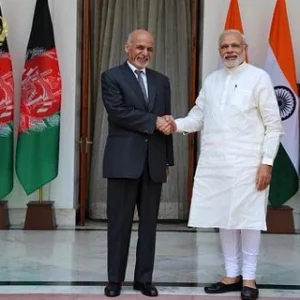
After a year’s hiatus, India is cautiously returning to Afghanistan. Amid China making inroads in Afghanistan, explore the evolving dynamics of Indo-Afghan ties in the region, and the crossroads at which they stand.

Both Pakistan and Afghan are home to number of ethnicities, having a history of ups and downs in their relations comparable to a sinusoidal wave. In contemporary times, these Ethnicities are not essentially in harmony with each other; with ethnic clashes in Afghanistan being much more violent than those in Pakistan.
![Al-Qaeda, TTP, ISKP in Pakistan's backyard: Pakistani troops observe the area from a hilltop post in Khyber district [File: Anjum Naveed/AP]](https://southasiatimes.org/wp-content/uploads/2022/10/AP21312682025351-1-300x300.webp)
Al Qaeda, TTP, and IS-KP pose a great threat to South Asia and the whole world. Sharing similar history and formation, these organizations converge on their origin. However, their beliefs in Islamic State and their area of influence provide a distinction among them.

Floods in Pakistan have not only revealed the country\’s extreme vulnerability to climate change but also the great North-South divide whereby the privileged carbon-intensive lifestyles of many in the North have greatly imperiled the relatively disadvantaged South.

As India takes the lead in hosting multiple global conventions on counterterrorism within a short span, using them for political mileage, it becomes necessary to call its credentials into question.
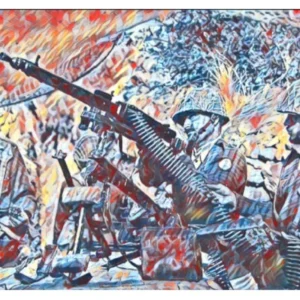
1965 was a watershed year for Pakistan. In it, a highly charged election was contested, in which Ayub Khan won office but lost his reputation and legitimacy in most of the country’s eyes. Then the war of 1965 tested the established military doctrines, which we found wanting.
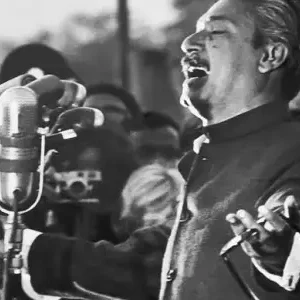
In 1965, Sheikh Mujib visited India and met Indian officials. He also had a meeting with some dissident Bengali officials, in which he encouraged them to continue their anti-Pakistan activities. Thus was born the Agartala conspiracy.

Bhutto had called Ayub Khan “daddy” at one point in his life, and Ayub had engineered Bhutto’s meteoric rise, but the two fell out in the aftermath of the 1965 war.

Released on April 3rd, 2016, by the newspaper Süddeutsche Zeitung, Panama Papers became the world’s most scandalous leak in history.
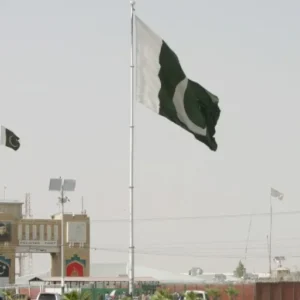
With an ongoing Afghan Peace Process, South Asia Region’s multifaceted regional connectivity has entered into a new phase.

On March 16th, The Human rights council of the UN brought detailed charges against Sri Lanka over alleged human rights violations. This new wave of
As Pakistan faces a rising number of cases, the National Command and Operation Centre (NCOC) revised border protocols on Sunday. An official statement from NCOC

Modi’s regime falters as Banerjee wins big in the West Bengal Assembly, amid a worsening COVID situation in India.
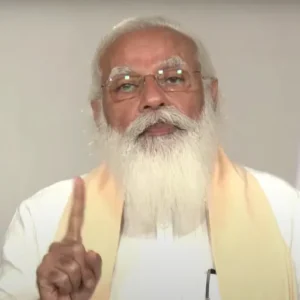
India’s COVID-19 crisis hits record cases and deaths. BJP faces political fallout as the health system collapses.

Governments, corporations, NGOs, and citizens around the globe observe world environment day to address climate change and environmental issues.

As early as the 1990s, western powers have been involved in offensive cyberespionage. Analyzing the interstate engagements of cyber operation.

The Taliban have increasingly asserted themselves by capturing territory and growing political influence in Afghanistan. Hence, now neither the United States nor the Afghan Government can independently deal with the Taliban.
![The Afghan government has initiated digging trenches to capture rainwater and snowmelt on a mountain on the outskirts of Kabul [Al Jazeera].](https://southasiatimes.org/wp-content/uploads/2020/07/Kabul-300x300.jpeg)
The Afghan government has initiated digging trenches to capture rainwater and snowmelt on a mountain on the outskirts of Kabul.

Last weekend, OPEC+
countries agreed on cutting outputs to stabilize the dramatic slide in prices. This deal was
supposed to keep the oil from flooding the market until the demand was returned to its normal
levels.

Currently, the COVID-19 crisis is the worst health emergency the world is witnessing. The worst toll it has taken is on the economy. The US
Iran Chabahar port has recently carried out its first cargo movement to South East Asia via the Indian commercial port of Mundra. Moreover, the director-general
Jalalabad Attack Kabul administration authorities in Jalalabad have asked residents to stay indoors. Afghan Army’s chief of staff Gen. Yasin Zia is also present in
World Bank board of directors approves $202 million to additionally finance for the Modern Food Storage Facilities project. This stimulus is directed towards increasing the